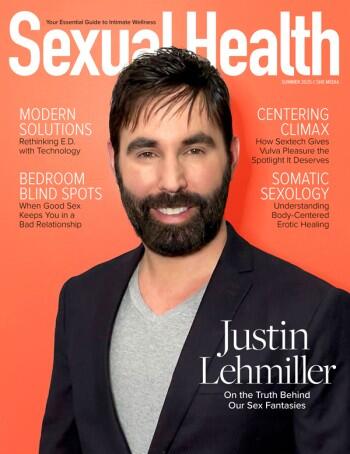Few technological advancements have inspired the level of controversy that has been generated by the advent of artificial intelligence, which is now powering or being incorporated into digital tools we use every day. Programs like ChatGPT, with their ability to generate almost anything for us on the fly, have sent everyone from classroom teachers to business executives scrambling to figure out applicable and appropriate standards and protocols.
In the adult industry, we are already seeing ChatGPT used to generate entire websites’ worth of content, product descriptions, press releases and even articles submitted to media outlets. As has been customary in our business, we would therefore do well to set some standards and best practices of our own.
One way we can remain fresh and original is by making sure we present and promote our brands to the public in a manner that reflects the originality and creativity that characterize this industry at its best.
While the prospect of seemingly no-cost tools that can automatically generate images and text almost instantly sounds appealing at first — especially for those of us managing small businesses on an ever-tightening budget — the possible pitfalls and ethical implications of using programs like ChatGPT in place of humans are not yet completely clear. Here are some important issues to consider in determining how using AI tools could affect our brands and bottom lines.
Sexual Misinformation
End users trust adult retailers and manufacturers with their bodies, their relationships, their pleasure, their health and safety, and their most intimate moments. The people who enjoy our products and services rely on us, retail staff especially, for sexual health information, pleasure education and advice they can’t easily find anywhere else. They understandably assume that if we’re working in this industry, we must know what we’re talking about, writing about and selling.
Relying on programs like ChatGPT for our instructions, manuals, descriptions, blogs and web content means we run the risk of spreading sexual misinformation that can not only negatively impact users, but also permanently damage the loyal relationship they have with our brands. ChatGPT itself warns users not to assume that its responses are accurate, stating: “My responses are not intended to be taken as fact, and I always encourage people to verify any information they receive from me or any other source.”
That’s because ChatGPT does not “write” content in the way a person might. It algorithmically generates a series of words based on whatever prompt it has been given. If the prompt isn’t clear, the chatbot will simply “guess” what you meant. That is because ChatGPT’s sentences are generated using probability, identifying which words are most likely to follow the previous words based on the data it has been trained on: blogs, news articles, Wikipedia articles, public websites, books and other content written by humans.
Importantly, ChatGPT is not “up to date.” It was originally trained on data ending in 2022, and while the latest iteration includes more recent data and can search the web for newer information, queries may return outdated responses. In the fast-evolving sexual wellness space, it is important that we share only the most current and accurate information.
Furthermore, ChatGPT’s developer, OpenAI, has publicly acknowledged that its chatbot generates biased and/or inaccurate responses, particularly when it has not been fine-tuned on specific topics or tasks — including sex, sexual health and pleasure topics. It is trained using existing internet content and data and, like much of the automation technology coming out of Silicon Valley, ChatGPT has displayed harmful racial, sexual, ethnic and gender biases. OpenAI has also warned that ChatGPT “hallucinates” and often misrepresents facts in ways that sound plausible but are completely false.
At best, passing along outdated or outright incorrect information makes us look bad. At worst, it could harm end users, leave us liable for such harm, and damage our brands, reputations and customer relationships.
Plagiarism
Speaking of liability, ChatGPT is trained using other people’s intellectual property, which means its outputs are not original and could even regurgitate someone else’s work. This is plagiarism. Even copying and pasting ChatGPT’s output word-for-word can be considered plagiarism, which naturally invites legal consequences. Several major media outlets and authors have already sued OpenAI for copyright infringement.
Security and Privacy
Our industry thrives on privacy. When you utilize AI and ChatGPT, you are engaging with technology that is at the center of a security and privacy debacle. As of this writing, ChatGPT has been banned in at least five countries — temporarily in Italy after GPT-4 was released — and in October 2023, the U.S. government signed the first-ever AI executive order to address safety concerns. Two months later, the European Parliament passed the Artificial Intelligence Act to regulate AI use and protect citizens’ privacy.
Labor Exploitation
In the U.S., exploitative labor practices that bring us electronic devices, fast fashion, delivery services and more have become so commonplace that many of us have become desensitized to the problem. Using AI programs like ChatGPT means you are benefiting from a particularly inhumane form of labor exploitation taking place overseas. Workers in Kenya, for example, are reportedly paid an average of $2 an hour for 10-hour days to moderate written and visual content meant to improve ChatGPT’s functionality and update the software. That content is disproportionately violent, graphic and disturbing. Speaking to The Guardian, one worker in Nairobi said of that work, “It has destroyed me completely.”
The Environment
Many adult companies highlight their commitment to sustainability, using recyclable packaging, seeking alternatives to plastics, using solar power and making other eco-conscious choices that benefit the Earth. Yet AI programs like ChatGPT are not aligned with values like energy conservation, mitigating climate change and protecting the environment. ChatGPT alone consumes more than 500 million kilowatts of electricity each day with a daily power usage nearly equal to 180,000 U.S. households. Simply training a large AI model like ChatGPT for two weeks requires the same amount of energy that 100 U.S. households use in a year. ChatGPT also requires 500 milliliters of water — about the volume of a 16-ounce bottle — for every 10-50 prompts that it answers, to keep the supercomputers from overheating. It’s estimated that it receives more than 10 million prompts every day.
Your Search Ranking
Companies have long packed their websites and blogs with keywords that “optimize” their sites for better search rankings. In the last couple of years, ChatGPT has been used to create a lot of that content. This has resulted in SEO-ified, keyword-jammed word salad that updated search engines are designed to flag. Google has modified its search engine to identify and remove AI clickbait and other “low-quality” and “unoriginal” content. The upshot: Trying to save money by relying on ChatGPT for web content could backfire, getting your site banished to Google purgatory.
Your Reputation
Shoppers who can afford to do so will buy specifically from stores and brands that publicly state their commitment to ethical and sustainable practices, sex education, gender empowerment, social justice and equality. If your company represents itself as strong in these areas, but uses ChatGPT to generate copy and/or imagery, you are not only contradicting your brand’s values, but also risking losing those shoppers and future shoppers if they find out — especially if you don’t disclose it publicly, since a single TikTok video can out a brand’s misstep worldwide in less than a day.
One final point, and perhaps the most compelling of all: AI and models like ChatGPT may be innovative, but they cannot innovate. The current iteration of AI cannot give us a new idea. It can only repackage old ideas, much as preexisting sex toy shapes and lube formulations are packaged and repackaged. In an industry rampant with rip-offs and knockoffs, one way we can remain fresh and original is by making sure we present and promote our brands to the public in a manner that reflects the originality and creativity that characterize this industry at its best.
Anne Hodder-Shipp is the founder of sex-positive PR and marketing firm Hodder Media and has been serving adult retailers, distributors and manufacturers since 2009. Anne is also the award-winning sex educator behind Everyone Deserves Sex Ed (EDSE), which provides trainings and certifications to adult industry professionals.








